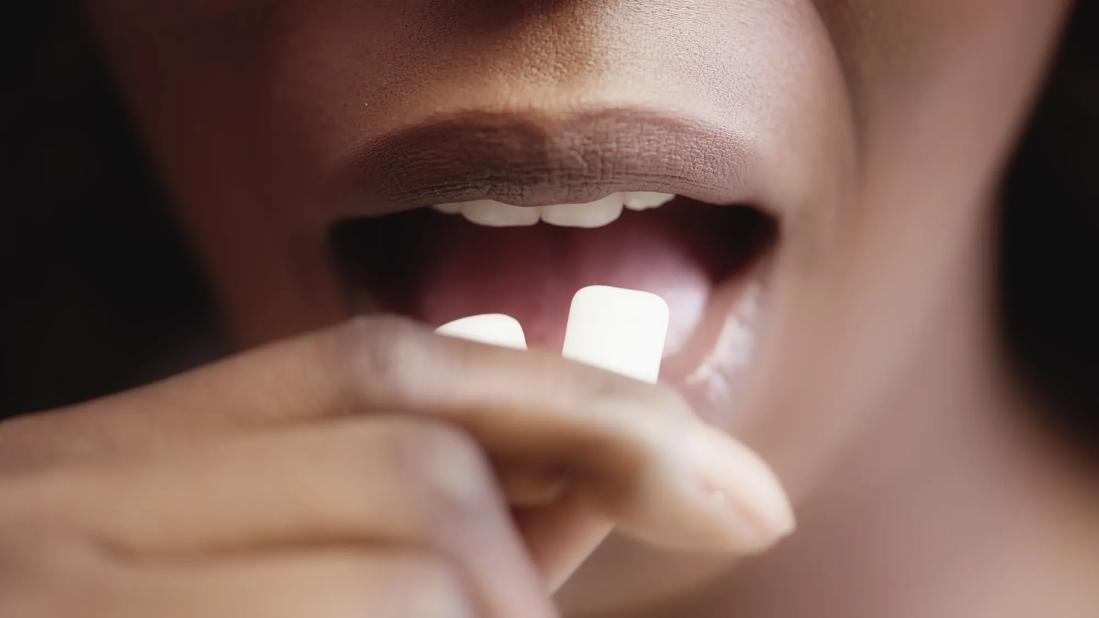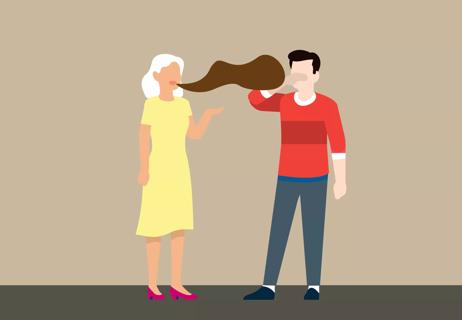Stay hydrated, use a humidifier and try sugar-free candies or over-the-counter products with xylitol

When your mouth doesn’t produce enough spit (saliva), it can feel like your own personal version of the Sahara Desert — bone-dry, parched and cracked. Dry mouth (xerostomia) can even make swallowing and speaking more difficult and turn breathing into a chore. But there are steps you can take to try to find relief.
Advertisement
Cleveland Clinic is a non-profit academic medical center. Advertising on our site helps support our mission. We do not endorse non-Cleveland Clinic products or services. Policy
To combat dry mouth, stay hydrated, turn on a humidifier, and try sugar-free gum and candies or over-the-counter products with xylitol. It’s also important to address any underlying health conditions that might be contributing to the problem.
Skip so-called home remedies like papaya, melon and acupuncture, which won’t do anything to help your dry mouth. Instead, family medicine physician Neha Vyas, MD, delves deeper into these strategies and others for finding relief.
Keep a glass or bottle of water on hand throughout the day so you can sip or swig as needed to help moisten your mouth. You can also suck on ice cubes or sugarless ice pops.
Dehydration can cause dry mouth, so getting enough water also helps keep things from getting worse.
“In general, ensure that you stay hydrated by drinking at least eight to 12 glasses of water daily,” Dr. Vyas recommends.
You may find that chewing sugarless or sucking on sugar-free hard candies helps you find temporary relief from dry mouth. Anecdotally, some people feel that chewing on sugar-free gum is helpful, too, but Dr. Vyas says the research there is mixed.
Going sugar-free avoids extra calories and carbs and spares your teeth the cavity-causing sugar. But there’s a catch: Sugar-free candies are made with sugar alcohols, which have been linked to possible health risks when eaten in large quantities. So, it’s still important to be mindful of how much you consume.
Advertisement
Xylitol is a sugar substitute that increases saliva production, so it’s often used in dental care products to help relieve dry mouth.
“Many types of products specifically designed to treat dry mouth are available over the counter,” Dr. Vyas says. Brands like Biotene®, OraCote®, ACT® and others make dry mouth-specific products like:
Of note: Foods made with xylitol, a type of sugar alcohol, have been linked to an increased risk of heart problems. But oral care products containing xylitol are thought to be safe because you don’t eat them in large amounts.
Research shows that treatment-specific mouthwashes can bring significant relief from dry mouth, Dr. Vyas says. In addition to mouthwashes made with xylitol, you can look for specially formulated mouthwashes made with ingredients like:
Research also shows that using ginger spray can increase the amount of saliva in your mouth when compared to a placebo. But you can’t swap in any other ginger product.
“Ginger spray helps with dry mouth, but ginger capsules don’t,” Dr. Vyas clarifies.
Certain products and ingredients can worsen dry mouth, whether by affecting saliva production or leading to dehydration. When you’re already dealing with dry mouth, it’s best to steer clear of:
Dry air dehydrates the mucous membranes in your nose and throat, which can make dry mouth worse. And the effect is especially bad at night, when you’re lying in place for a long time. But humidifiers can help.
“Use a humidifier at night, especially in winter, to help moisten the ambient air while you sleep,” Dr. Vyas advises.
When your salivary glands aren’t producing enough saliva, eating can become surprisingly challenging. To make dry foods easier to chew and swallow, moisten them before eating with:
Some of these additions can bring added calories and fat, though, so be cautious in your consumption.
If it’s not treated, dry mouth can lead to serious oral health problems like tooth decay (cavities) and gum disease (gingivitis). So, it’s extra important to care for your mouth and teeth by brushing after each meal and at bedtime.
“Soften your toothbrush in a cup of warm water so it’s gentler on your gums,” Dr. Vyas suggests. “And if your dry mouth is the result of undergoing radiation treatments, use a fluoride rinse to help prevent tooth decay.”
Advertisement
When your mouth is dry, you can also end up with painfully dry, chapped lips, which can make everything feel that much worse.
“Dry lips will, in turn, worsen the sensation of dry mouth,” Dr. Vyas notes.
To find relief, use lip balm as needed throughout the day — but choose the type wisely. Ingredients like phenol, menthol and salicylic acid can make your lips even drier, so stick to simple, petroleum-based products.
Often, the key to finding relief for your dry mouth is to figure out what’s causing it so you can get proper treatment. It can be a symptom of conditions like:
Dry mouth can also be the result of a treatment you’re receiving for another condition, like radiation or chemotherapy for cancer. If this is the case, ask your healthcare provider what they recommend to help manage this unpleasant side effect.
“Dry mouth usually resolves on its own one to two months after completing chemotherapy,” Dr. Vyas says, “but it can last six months to a year after radiation to the head and neck.”
A healthcare provider can help you identify the cause of your dry mouth and treat it appropriately, especially if you start to experience any additional effects.
Advertisement
“Over time, you may experience changes in taste, difficulty swallowing and, in some cases, speech changes,” Dr. Vyas warns. “You may also notice cracks and cuts on your lips at the corners of your mouth, or you could experience a burning sensation on your tongue.”
Your provider may talk to you about options like:
If persistent dry mouth is negatively affecting your life, make an appointment to have it checked out and treated appropriately.
Advertisement
Learn more about our editorial process.
Advertisement

These common mouth sores are very different — cold sores are caused by a virus and are contagious, but canker sores aren’t

This medicated liquid is available by prescription only and is specially formulated for your specific needs

Lots of things can activate the herpes simplex virus, from the common cold and cold weather to cracked skin and cosmetic procedures

This oral health practice doesn’t have proven benefits, and it’s not a substitute for brushing and flossing

Prescription oral antivirals are your best bet, but OTC creams can help, too

Non-cancerous ulcers usually heal within a few days or weeks — if it’s sticking around, it’s time to get it checked

Get quick relief with ice chips, popsicles, milk and saltwater

Chronic and extreme bad breath could signal a health issue that needs attention

Wearing a scarf, adjusting your outdoor activities and following your asthma treatment plan can help limit breathing problems

Your diet in the weeks, days and hours ahead of your race can power you to the finish line

When someone guilt trips you, they’re using emotionally manipulative behavior to try to get you to act a certain way